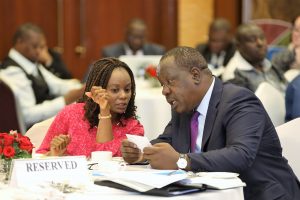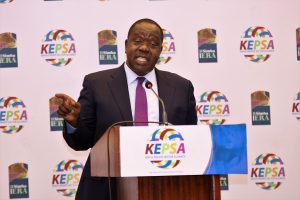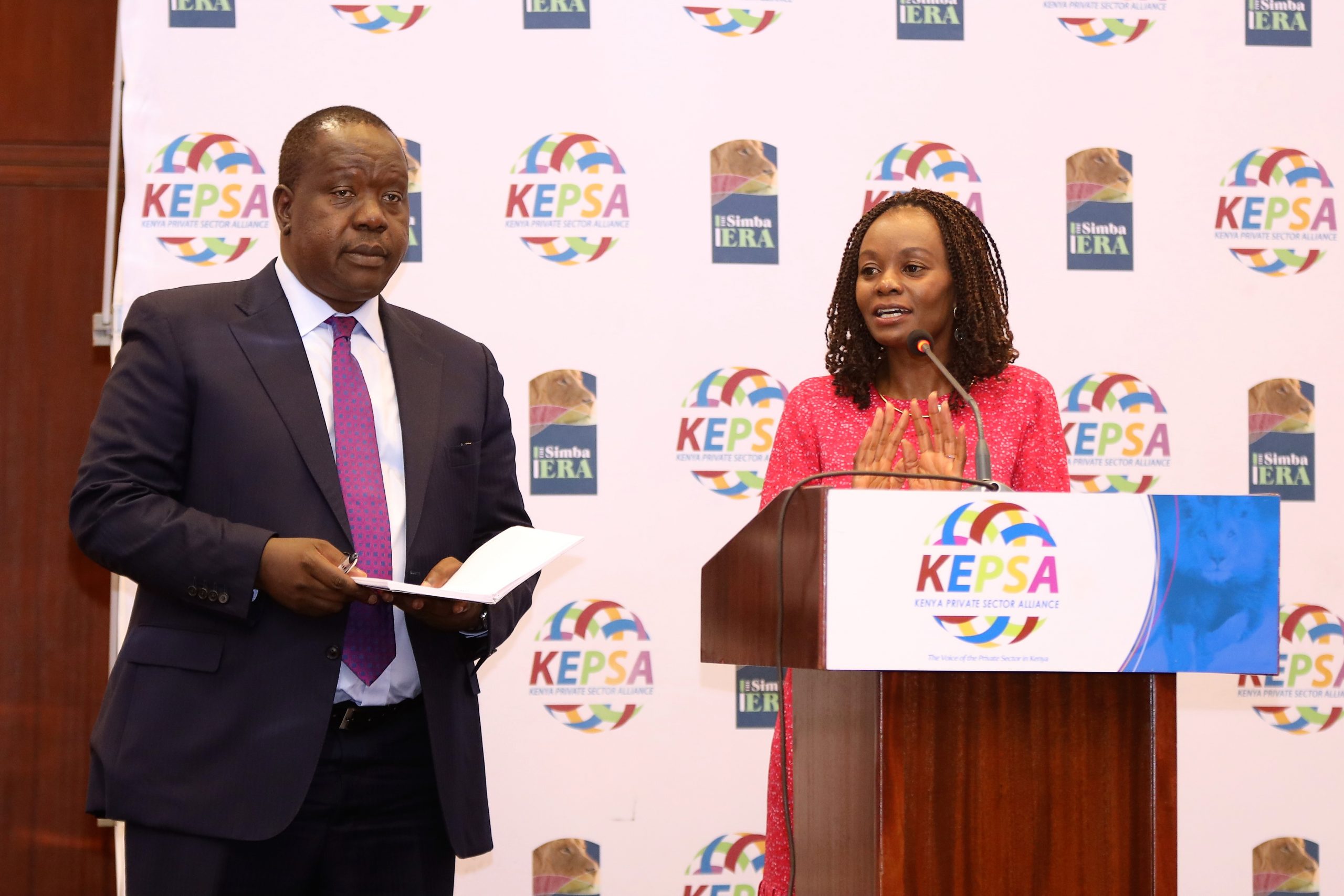Kenya Private Sector Alliance (KEPSA) issued three cross-cutting thematic agendas to the government on fast-tracking business and economic recovery to mitigate the effects of Covid-19, a rise in food prices, and the drought question.
KEPSA urges that this can be attained through sustained business incentives which include; guaranteed security, curbing the high cost of food production, taxes, regulating reforms to ensure economic competitiveness, and a smooth leadership transition.
“We need to explore alternative markets for key products sourced from Ukraine and Russia such as edible oils, wheat, steel, and fertilizer. Kenya imports 60 percent of its wheat shortfall from Russia and the disruption of supplies has caused millers to resort to expensive imports from other source markets. Similarly, we must move away from relying on rain-fed agriculture and adopt measures to increase irrigation as part of the measures to address the impact of climate change and drought while mitigating post-harvest losses” KEPSA CEO Carole Kariuki said.
Kariuki urged on a need to take keen awareness of the impacts of Covid-19 businesswise and economically as well as a solemn need for implementation of 15% electricity price reduction, injection of capital in business by honoring bills and VAT refunds, finalization of National Tax Policy and insurance of transparency through digitization of governmental services.
“The fast and solid response in addressing the Covid-19 pandemic in 2020/2021 was courtesy of the private sector’s mobilization efforts and collaboration with government and we will continue working together to explore our common aspirations,” CS Matiangi said.
Urging that the private sector and executive arm of government collaborate to ensure that the citizens obtain the best services from all diverse sectors.
The event was convened mainly to review the progress and implementation of cross-cutting issues and sectoral reform priorities not forgetting preparedness for peaceful elections whereby the sector urged for peace and stability.
Mainly seeking to address mitigation of the food security effects of supply disruption caused by the ongoing Ukraine-Russia war, KEPSA has recommended the government lift the ban on wheat imports from India as millers explore alternate sources for wheat, maize, edible oil, and animal feed raw materials as well as temporary exemptions on import duty for maize and wheat.

KEPSA CEO Kariuki stated, “We are also asking the government to grant full exemption to bonafide food and feed millers on import duty charged on maize for six (6) months and twelve (12) months for wheat to cushion consumers and local farmers.”
The government said it was to keenly observe the macroeconomic stability by looking at unemployment, Balance of Payment (BOP), interest and exchange rates to ensure that the private sector continues to have a conducive operating environment including the implementation of the national tax policy to ensure there is certainty in tax and the medium-term revenue projections. The private sector was also challenged to task the next administration to digitize land transactions and carry land reforms forward.
Importantly to address the medium, long-term, and short-term effects of the Ukraine-Russia war and the recommendations of the committee will soon be shared with the private sector.
Dr. Vimal Shah, Chairman of the Mkenya Daima Initiative, said “As Kenya looks forward to the 2022 General elections and the evolving governance space, there is a need to collectively look and envision a prosperous Kenya with good and accountable leadership, focus on and communicate positive gains and growth opportunities for the country, and change the political, economic and social-economic narrative to one that is positive and will build the country and its people towards the aspired Vision 2030.”
As for the intensity of matters raised, CS Matiangi responded by assuring that the country is stable, safe, and secure as the places that were hotspots in 2017 are no longer hotspots.

CS Matiangi
Sharing some of the measures put in place to ensure security, and peace monitors, embedded with the Nyumba Kumi initiative to enhance neighborhood security, the government had also procured 2,720 new vehicles to enhance mobility and rapid response by the Police and other administrative officers.
According to Matiangi, 20,300 Police Officers have been recruited since 2017 with the training of security officers in public order management currently ongoing for officers who will be seconded to cover the election. A multi-agency team comprising the ODPP, DCI, NPS, CA, EACC, and NCIC has also been set up to fast-track handling of hate speech cases with 145 hate speech cases already investigated and 65 files forwarded for prosecution.

